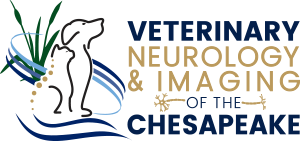ELECTRODIAGNOSTIC TESTING
Electromyography (EMG) and nerve conduction velocity (NCV) are electrodiagnostic tests performed to measure the electrical activity of muscles and nerves. These tests are the primary way to diagnosis diseases of the muscle and helps guide practitioners in selecting appropriate sites for biopsy when indicated.
What are EMG and NVC studies used for?
EMG studies are typically prescribed to diagnose nervous system diseases, including those that affect the muscle (myopathy), nerve (neuropathy), and brain (encephalopathy).
These studies are designed to diagnose any abnormality in the functioning of these nerves. They investigate the functioning of the nervous system, while imaging studies like CT scans or MRI scans look at the structure or anatomy of a body part or organ.
The NVC test helps differentiate between an injury to the nerve fiber and an injury to the myelin sheath, the protective covering surrounding the nerve. It can also help tell the difference between a nerve disorder and a condition where a nerve injury has affected the muscles.
An EMG test is often performed alongside an NCV test. An EMG test records the electrical signals moving through the muscles. This helps detect the presence, location, and extent of any disease that may damage the nerves and muscles.
Humans have described NCV tests as feeling like an electric static shock after walking across a carpet. This lasts a very short time (1/1000 of a second). EMG is measured with an ultra-thin, Teflon-coated pin electrode to record muscle activity. Because the wire is so thin, there is almost no risk of bleeding or infection.
Both tests carry low health risks with minimal discomfort to the patient.
Our commitment to dedicated veterinary anesthesia
We prioritize the comfort and safety of your pet during their procedure. Our imaging department veterinarians, Dr. Elana Rybak and Dr. Abby Cusack have extensive experience in anesthesia, ensuring the highest standard for our patients. Throughout your pet’s procedure, one of our experienced veterinarians will be specifically dedicated to managing your pet's anesthesia— ensuring their comfort and safety every step of the way:
Pre-operative assessment: Evaluating each patient's health status to determine the most appropriate anesthesia protocol.
Anesthesia administration: Carefully administering and monitoring anesthesia during MRI and CT scans.
Post-operative care: Supervising patients during recovery and managing any potential complications.
In addition to managing anesthesia for in-house procedures, our anesthesia team also provides sedation recommendations for outpatients undergoing procedures. These recommendations are tailored to each patient's individual needs and health status, ensuring a safe and comfortable experience.
Our commitment to dedicated veterinary anesthesia allows us to:
Minimize risks: By having specialists manage anesthesia, we reduce the potential for complications and ensure patient safety.
Improve patient comfort: Our anesthesia protocols are designed to minimize discomfort and anxiety during procedures.
Provide expert care: Our anesthesia team brings extensive knowledge and experience to every case, ensuring the highest quality of care.
We understand that anesthesia can be a concern for pet owners, and we are committed to providing clear communication and addressing any questions or concerns you may have. Our goal is to make every procedure as safe and stress-free as possible for your beloved pet.
TRUSTED EXPERTS FOR YOUR FAMILY
Our veterinarians have more than eight decades of combined experience and are supported by a fantastic team of technicians and administrative staff.
Neurology & Neurosurgery
DR. JAY MCDONNELL
DR. JULIANNA MANNIX
Neurology & Neurosurgery
DR. LARRY GAINSBURG
Neurology & Neurosurgery




